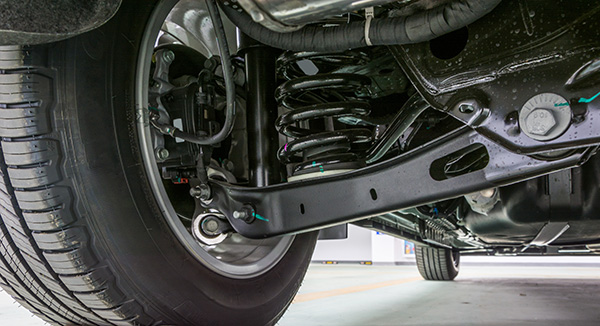
Feeling your car shake or vibrate as you drive can be unsettling, especially when you’re not sure what’s causing it. Car vibrations can range from a minor nuisance to a sign of a more significant issue under the hood. Whether it's a slight tremor when idling or a full-blown shake at high speeds, vibrations are a way for your car to tell you that something isn’t quite right. So, what are the common culprits behind these vibrations? Let’s explore some of the most frequent causes and what you can do to address them.
The Role of Your Tires and Wheels
One of the most common reasons your car might be vibrating is an issue with the tires or wheels. If your car starts to shake at certain speeds—especially around 50 to 70 miles per hour—it could be due to an imbalance in the wheels. Over time, the weight distribution on your tires can become uneven, causing them to wobble as they rotate. This leads to that familiar vibrating sensation you might feel in the steering wheel or even throughout the entire car.
Uneven tire wear can also be a factor. If your tires are worn down unevenly, they can cause your car to vibrate, particularly when driving at higher speeds. This can happen if your wheels are out of alignment or if the tire pressure is not consistent across all four tires. A quick trip to the repair shop for a wheel balance and alignment check can usually solve this issue. Remember to also check for any visible damage, like bulges or cracks in the tires, as these can also contribute to vibrations.
Engine-Related Issues
Your car’s engine is a complex machine with many moving parts, and when something is off balance, you’ll likely feel it. If the vibrations occur while the car is idling, the engine is usually to blame. Common engine-related causes include worn-out spark plugs or a clogged air filter. When spark plugs are old or dirty, they can cause misfires, which result in a shaking sensation.
Problems with the fuel system, such as clogged fuel injectors, can lead to inconsistent fuel delivery, causing the engine to vibrate. It’s essential to keep up with regular engine maintenance to prevent these kinds of issues. Replacing worn-out spark plugs and changing the air filter regularly can go a long way in keeping your car running smoothly.
Brake System Troubles
If you notice that your car starts to shake when you hit the brakes, the problem likely lies in your braking system. Warped brake rotors are a frequent cause of vibrations during braking. Over time, rotors can wear unevenly or become warped due to excessive heat. When this happens, the brake pads can’t grip the surface evenly, resulting in a shaky or pulsating sensation.
It’s worth noting that worn brake pads can also lead to vibrations, although this is less common. If you’re experiencing this issue, it’s best to get your brakes checked as soon as possible. Driving with faulty brakes can compromise your safety and that of others on the road.
Problems with the Drivetrain
Your car’s drivetrain is responsible for delivering power from the engine to the wheels. Issues with the drivetrain can cause significant vibrations, especially if you’re driving at higher speeds. One common culprit is a worn-out or damaged driveshaft. If the driveshaft is out of balance or if the universal joints are worn, you’ll feel a noticeable shake, especially when accelerating.
Another potential issue could be related to the transmission. If your car vibrates when shifting gears, it might be due to low transmission fluid levels or a failing clutch in manual vehicles. Regularly checking your transmission fluid and ensuring it’s at the correct level can help prevent these kinds of vibrations.
Suspension and Steering Problems
The suspension system plays a crucial role in ensuring a smooth ride. If your car vibrates when driving over bumps or uneven surfaces, your suspension or steering components might be to blame. Worn-out shocks, struts, or even ball joints can cause your car to shake, especially at higher speeds.
If you notice that your car pulls to one side while driving or if the steering feels loose, these could be signs that your suspension needs attention. Regular inspections of your suspension and steering system can help catch these issues early before they turn into costly repairs.
Exhaust System Issues
Sometimes, car vibrations can be traced back to the exhaust system. If there’s a leak or a damaged component in the exhaust, it can cause the car to vibrate. Often, these vibrations are accompanied by a loud, unusual noise from the exhaust. This could be due to a broken muffler, a loose exhaust pipe, or even a failing catalytic converter.
If you suspect your exhaust system is the cause of the vibrations, it’s essential to address the issue quickly. Not only can a faulty exhaust system lead to decreased performance, but it can also expose you to harmful fumes.
Feeling those annoying shakes while driving? Don’t wait until it gets worse! Visit NOLA Automotive Repairs today for a thorough inspection. We’ll pinpoint the issue and get you back on the road in no time.